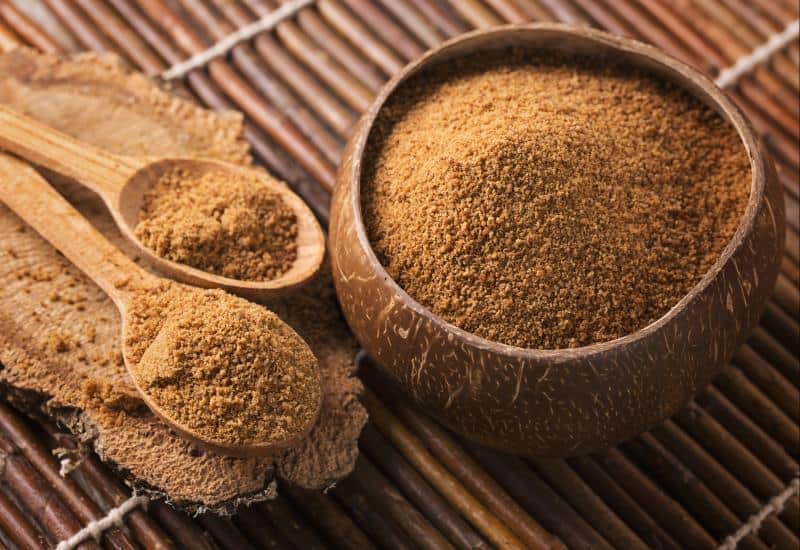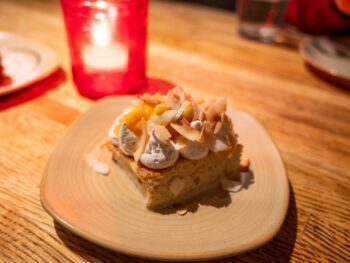
Does coconut sugar taste like other type of sugar?
Coconut sugar might look like brown sugar. However, it is completely different. Check out this article to know more about coconut sugar!
Coconut sugar is derived from the sap of the coconut palm tree and is produced in the Southeast Asia. Coconut sugar is processed different than other sugar. It processed minimally, so it preserves some of the natural vitamins, minerals, fibre, and antioxidants found in other unprocessed sugars. How to make coconut sugar is sourced from the nectar of coconut palm tree blossom. To make the nectar become crystallized is by boiling the sap of the flower until it solidifies and thickens. Once it crystallized, the coconut sugar is ready to be sieve and served.
How Does Coconut Sugar Taste?
Coconut sugar has unique flavor and color that varies depending on the species used to create it and when it was harvested, but it has a smoky taste that is comparable to brown sugar with undertones of caramel. Another unique fact about coconut sugar is it a low glycaemic index (GI) of 35 (about half that of white sugar), which has led to claims that it is an excellent sugar alternative for diabetics. It is a strong source of potassium, magnesium, zinc, and iron, as well as various B vitamins, and has a high mineral content when compared to other sugars.
In terms of its taste, you can try to mix coconut sugar with coffee. Coconut sugar will not only make your coffee taste better, but it will also enhance the bitterness of coffee with the sweetness, smoky, and a little bit of savory in your coffee. In the southeast asian countries especially Indonesia they have a habit of brewing a coffee by using coconut sugar instead of other ordinary refined sugar. This has been done for generations because it can increase the taste of coffee that is more delicious.
How to Use Coconut Sugar
Other than that, coconut sugar can also be used in cakes, cookies, granola, parfaits, sauces, and any other recipe that calls for conventional sugar. Simply use a one-to-one ratio of coconut sugar to white or brown sugar when making a recipe. When cooking with coconut sugar, the basic rule is to use the same amount as white or brown sugar in a dish. However, because it has a darker color for sugar, avoid using it in baked goods that require a pale color food.
When you use coconut sugar for additional ingredients, please do not expect coconut flavor from coconut sugar. Coconut sugar is using the sap of the coconut, not the meat of the coconut, is utilized to manufacture coconut sugar. The typical coconut flavor comes from the meat. Coconut sugar has a moderate, straightforward caramel flavor.
Coconut Sugar Storage
For the storage, coconut sugar should be kept dry and in a well sealed container. You can keep it for up to a year at room temperature in a cool, dry place. If the coconut sugar is in block form, store it in an airtight container in a cool corner of the pantry to avoid drying out. When your coconut sugar clots, do not worry because it can still be consumed well. You just need to break it with the help of a spoon so that it returns to the form of granule and put it in a cool and not damp place.
In summary, coconut sugar can be used in place of regular sugar in beverages, baking, and cooking because the flavor and texture are so comparable. Stir it into your coffee or tea, or use it in pies, cookies, donuts, and even homemade vegan chocolate bars, just like white or brown sugar.



